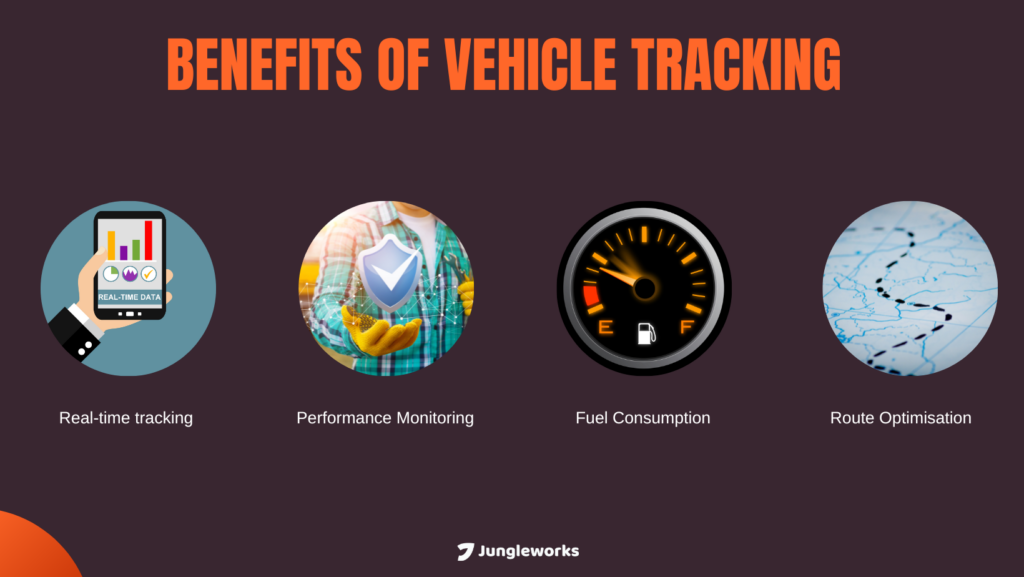
- Products
- Solutions
- Learn
- Partner
- Try Now
If you belong to the transportation business, before we go ahead, I would like you to answer this simple poll below.
I am having a tough time managing my fleet of trucks
Majority of the transportation business owners all over the world are facing this challenge. Increasing fuel costs and heavy maintenance expenses are rotting the truck business from within, restricting growth.
It is practically impossible to keep an eye on the fleet of trucks operating for your business, hence, technology is the only way forward.
Amid this, a solution that has become the need of the hour is IOT i.e. Internet of Things. In this write-up, we will talk about IOT and its role in logistics and transportation.
But before that, let us take a look at why monitoring is important.

Challenges and Importance of Monitoring
Poor maintenance
The first and foremost challenge being faced by the truck companies is the maintenance of their vehicle. If you are a fleet owner, you must have experienced the difficulty in keeping a check on your vehicle.
It involves looking at the driver’s behavior, what speed he is driving the vehicle at, is he driving rashly or not and many more such things that are vital for the longevity of your vehicle. For eg. In case of an accident, it gets difficult to judge whose mistake it was.
Truck maintenance is a costly affair and negligence can cost you a big buck. If controlled, on the other hand, the expenses can be reduced and the profit increased.
Also Read
Why Last Mile Delivery Logistics Solutions Can Disrupt Logistics?
Heavy fuel costs
In a truck business, the majority of money is spent on fuel. Your fuel bills can touch the sky if the vehicle is not being driven properly.
It involves rash driving, over braking, wasted mileage and much more.However, if the driving is proper, the vehicle will give better mileage and imagine how much cost it would be saving.
Mismanagement
Often it is seen that drivers hand over your vehicle to an unknown person and this can lead to serious damages/offense. It can even lead to loss or theft of your vehicle.
To avoid these kinds of circumstances, a fleet management system is a must which lets you track your vehicle in real time and reveals the location of your vehicle.

What is IoT?
The Internet of things is referred to as a process of interconnection via the internet of computing devices embedded in everyday objects, enabling them to send and receive data.
For eg. Adding internet to the telematic control units in a vehicle.
IoT has a lot of benefits and can be a great boon for the transportation and logistics industry. The industry is growing at a rapid pace and offers solutions to a lot of problems in the trucking industry.
One of them is vehicle tracking.
Vehicle Tracking and how it works?
Vehicle tracking is the process of tracking your vehicles through a GPS device. The GPS (Global Positioning System), as we all know, is powered by a global radio navigation system and relies on data from a satellite network.
It gathers information about the location of a vehicle and sends it to a central location. Not only the location, GPS trackers are smart hardware devices that, when installed to your vehicle, can reveal a lot of data about the behavior of your vehicle to the software integrated with it.
GPS tracking is utilized today not only in trucking business but in many other applications too.
Here’s how a GPS vehicle tracking system works in your fleet:
- Install a GPS tracking device in each vehicle or asset you want to track.
- Signals are transmitted from the satellite to the receiver.
- The receiver calculates the distance between itself and the satellites in real time.
- A report is created showing your vehicle’s travel distance or movement, coordinates and speed.
- The data is transmitted to the GPS server using a wireless or cellular network.
- GPS servers allow end-users to access reports in real-time from their computer, smartphone or tablet.
- End-users can set up automated alerts for the information that is most relevant to their needs.
Source: Track Your Truck

Benefits of a Vehicle Tracking system
Real-time tracking
GPS allows you to collect important data about the movement of your vehicle.
It tells you about the exact real-time location where your vehicle is traveling and when it is stopping in-between.
It provides the current status which also aids in allocation.
Performance Monitoring
The GPS monitors the behavior of the driver, the driving pattern and the performance. Over-speeding, rash driving, over-braking, forceful acceleration can also be detected via the GPS.
It also creates a detailed report of the drivers performances so that it becomes easy to analyze their behaviors and provides concrete info on vehicle usage by the drivers.
Continuous monitoring of your vehicle leads to more safety and less insurance costs.
Also Read
What is Vehicle Management and why is it important in Warehouse Logistics?
Fuel consumption
A GPS device can also tell you about the vehicle’s fuel consumption. It can give you metrics like the total distance covered and fuel consumption in a day.
It also alerts you of the idle time, wasted mileage, aggressive driving, after hours usage, speeding and many more other things that are essential for fuel saving.
Route Optimisation
Another big benefit of a tracking system is route optimisation which can save you fuel and overall costs. GPS provides you with the best and shortest route possible. Also, it lets you find the nearest driver to your destination for allocation.
A fleet tracking system is a must for your business in today’s scenario. It provides you with flexibility and transparency so that you can run your business more efficiently.
If you are interesting in integrating IOT to grow and optimise your business, we are here to assist you.
Look no further and contact us today.
Subscribe to stay ahead with the latest updates and entrepreneurial insights!

Subscribe to our newsletter
Get access to the latest industry & product insights.





















